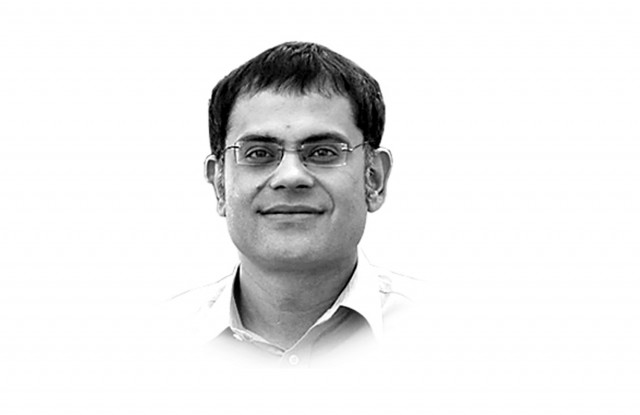Challenges facing the PM-elect
To initiate reforms, Sharif would need to work with opposition political parties, including those who control Senate.

The writer is Director, Policy & Programmes Jinnah Institute, Islamabad. The views expressed are his own
Sharif may know it better than others that this is not the same Pakistan that he ruled twice during the 1990s. The post-Eighteenth Amendment Pakistan ensures greater resources and powers to the subnational governments. And the existence of a fairly robust media and an activist judiciary will be the new determinants for his stint as the PM. Much to his dismay, he may soon realise that it may not be easy to make the foreign and security policy shifts he has been hinting at in his pre-election statements. Finally, a country beset by chronic economic troubles, particularly the endemic energy crisis, is going to keep him quite busy for the months to come.
While Mian Saheb has time and again declared the economy as his priority, it would do him and his future cabinet well to recognise that two imperatives will determine the course of economic growth and stability. First, insecurity: the law and order situation in Karachi, Taliban-sponsored terrorism, and the situation in Balochistan; and second, the long-delayed economic reform that no party can achieve on its own in a provincialised Pakistan.
Domestic investors have been running away from the country simply because the state capacity to enforce contracts, maintain law and order, and reduce insecurity, has drastically declined since 1999, when Sharif was forcibly removed from the PM House and sent into exile. If anything, the Afghan and Pakistani factions of the Taliban, their foot soldiers in the militant sectarian organisations, and the parent al Qaeda network are now embedded in the “new Pakistan” that Mian Saheb will govern. The PML-N’s policy on the growth of extremism has, for reasons of expediency, not factored in the high priority agenda. It may have worked for keeping a coalition in Punjab intact, but it would be an impediment if the PML-N wants to deliver on all the promises and meet the high expectations of its support base, especially in Punjab. A clear and inventive policy on militancy would need to be formulated.
Reform has almost become an abuse-word in Pakistan. The last time civil service reform was undertaken was nearly 40 years ago. Our dismal tax-to-GDP ratio is another well-known reality. The earlier attempt to restructure taxation failed mainly due to a lack of consensus. To initiate reforms, Sharif would need to work with opposition political parties, including those who control the Senate, which is no longer a debating club. It is good to know that Sharif does not use the jihad mantra that dominated our policy discourse in the 1990s. With Punjab firmly backing him, there is a historic chance of resetting our security policy.
The good intentions on improving relations with India will not materialse unless the military is onboard. The Sharif government would face another challenge if Taliban adventurism were to begin after the Nato pullout from Afghanistan. To handle all these challenges and imminent crises, Sharif would need to work cautiously and assertively with the military. This tightrope walk should be eminently doable for a third time PM who is riding the wave of support from Pakistan’s mercantile and trading classes, its conservative lobbies, and most importantly, from the urban middle-class that wishes to live in a “New Pakistan”. This will not be an easy ride, especially when two provinces may not be governed by the PML-N and the Senate is dominated by the opposition. Here comes the real test for Mian Saheb, and let’s hope for the best.
Published in The Express Tribune, May 18th, 2013.















COMMENTS
Comments are moderated and generally will be posted if they are on-topic and not abusive.
For more information, please see our Comments FAQ